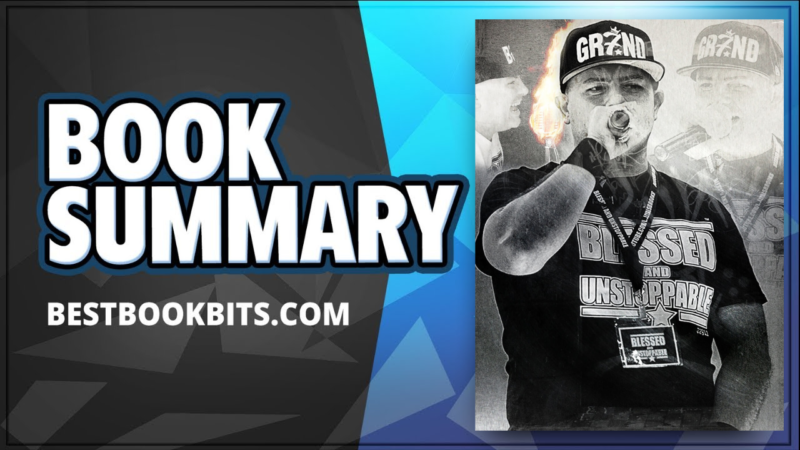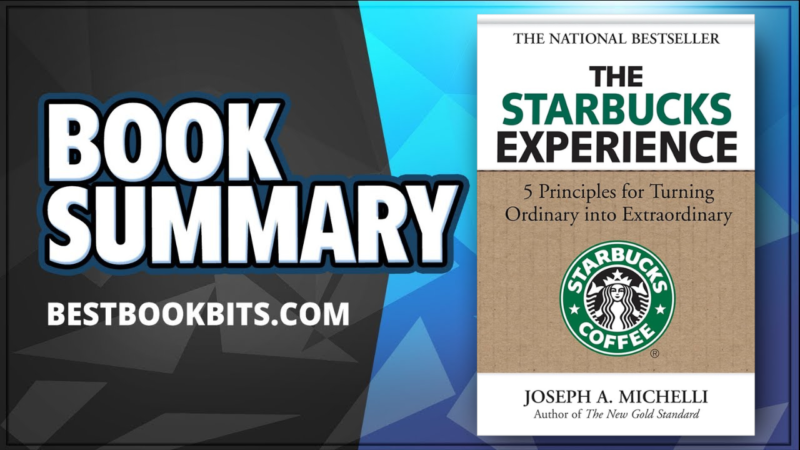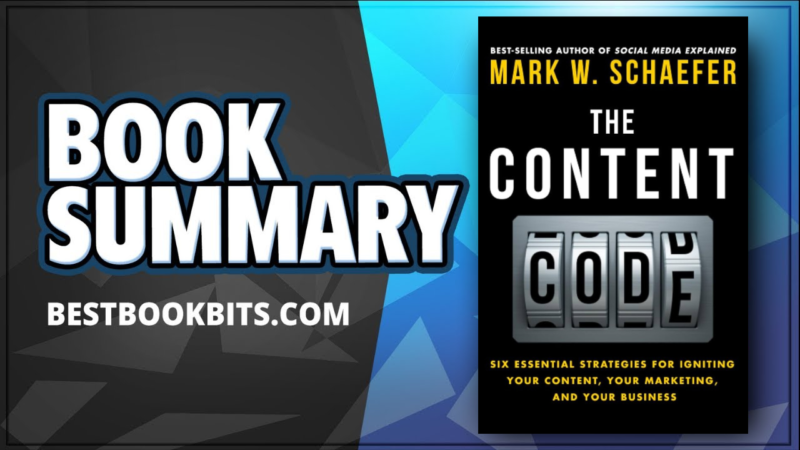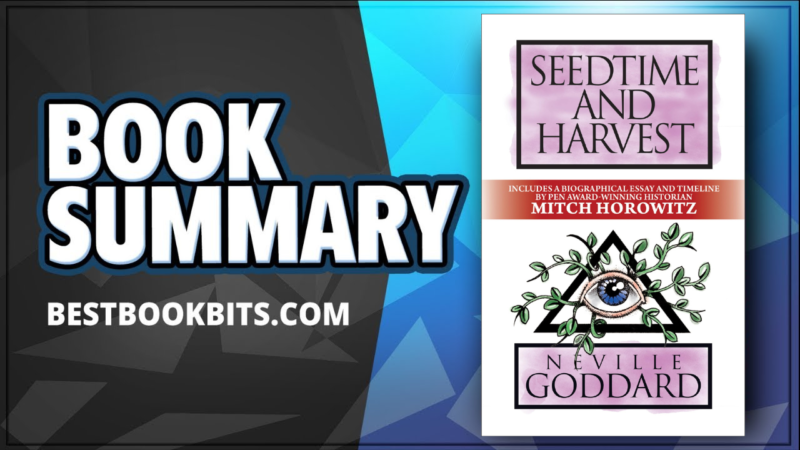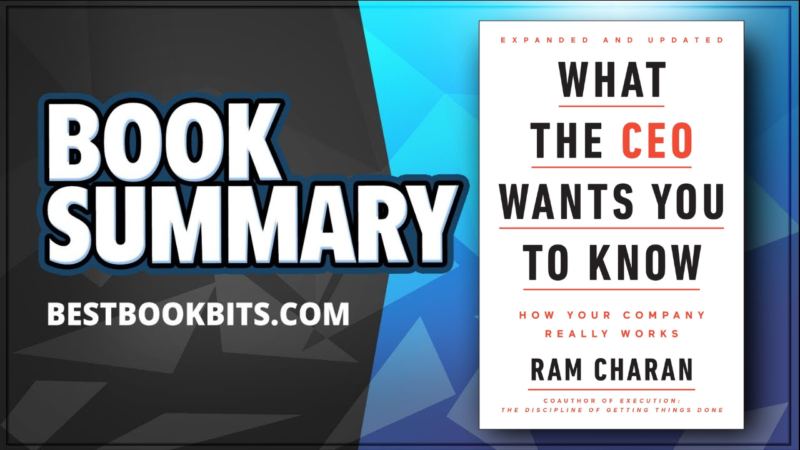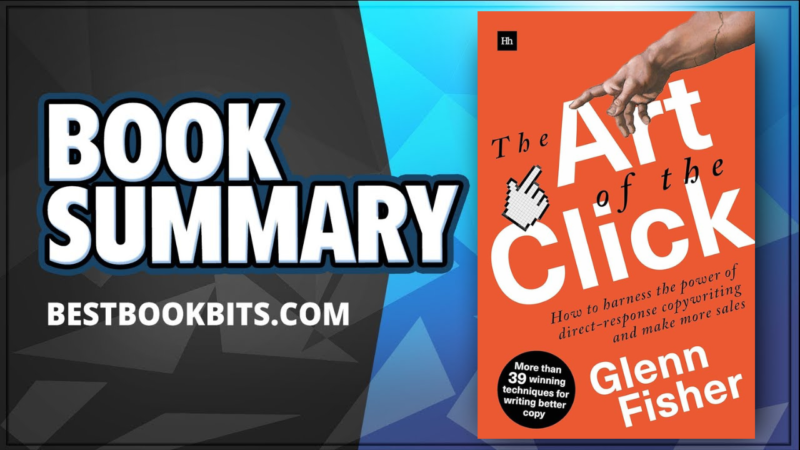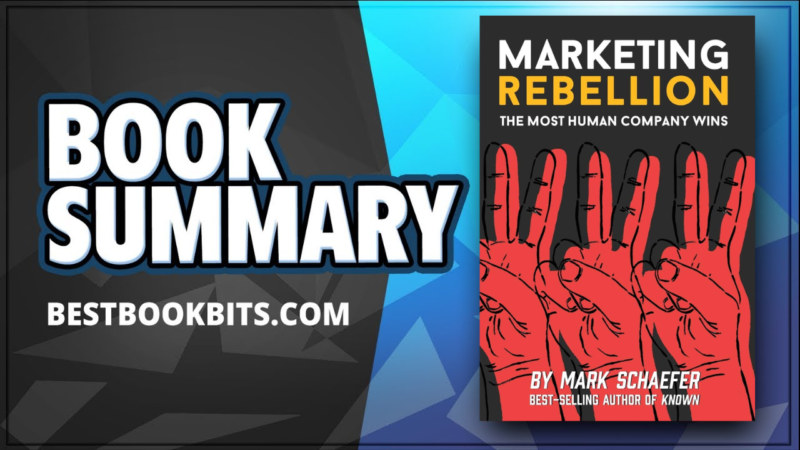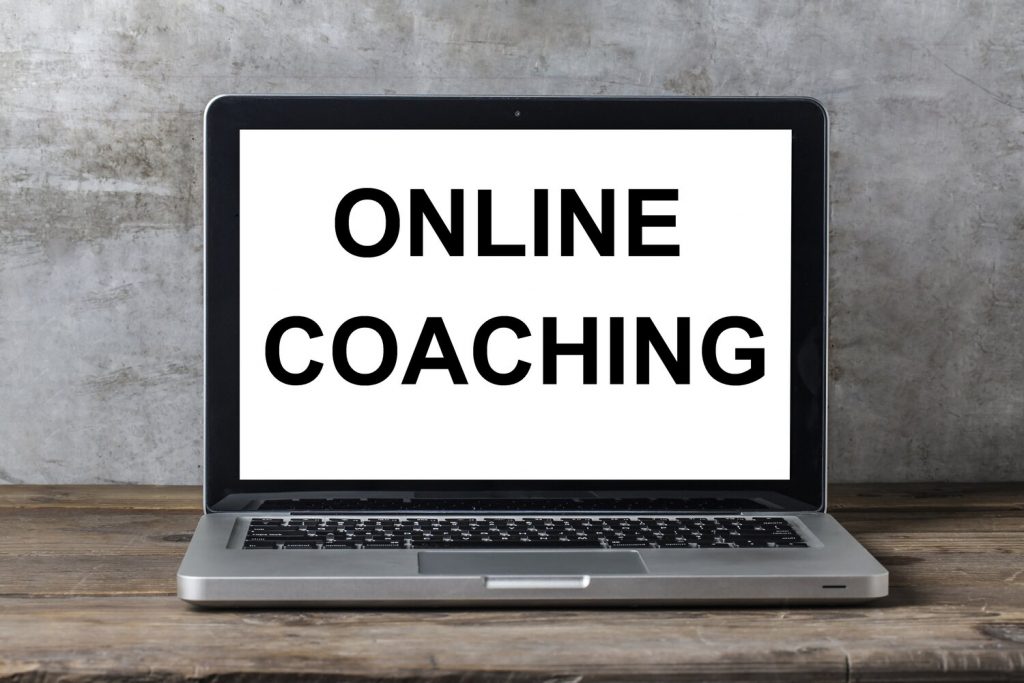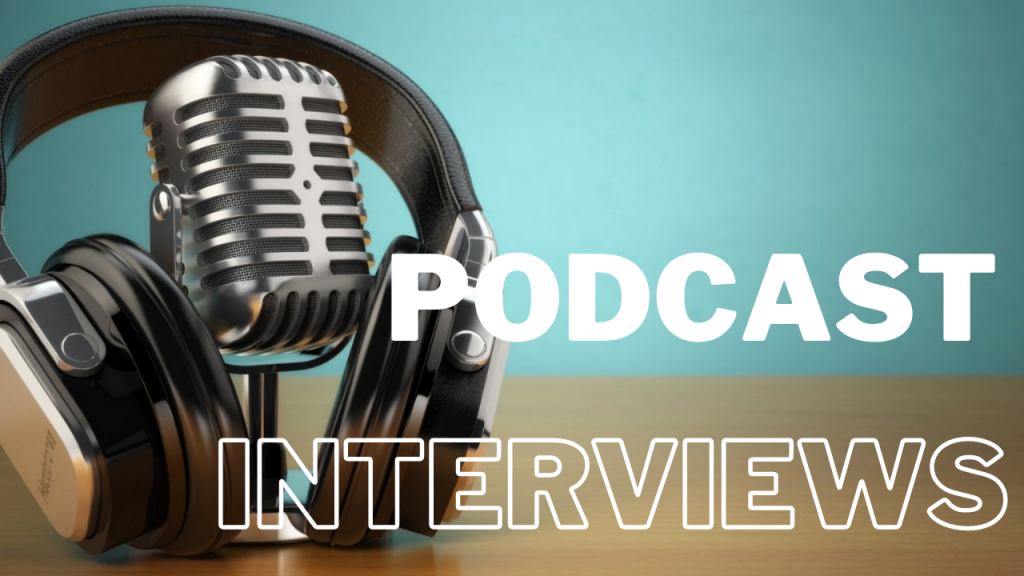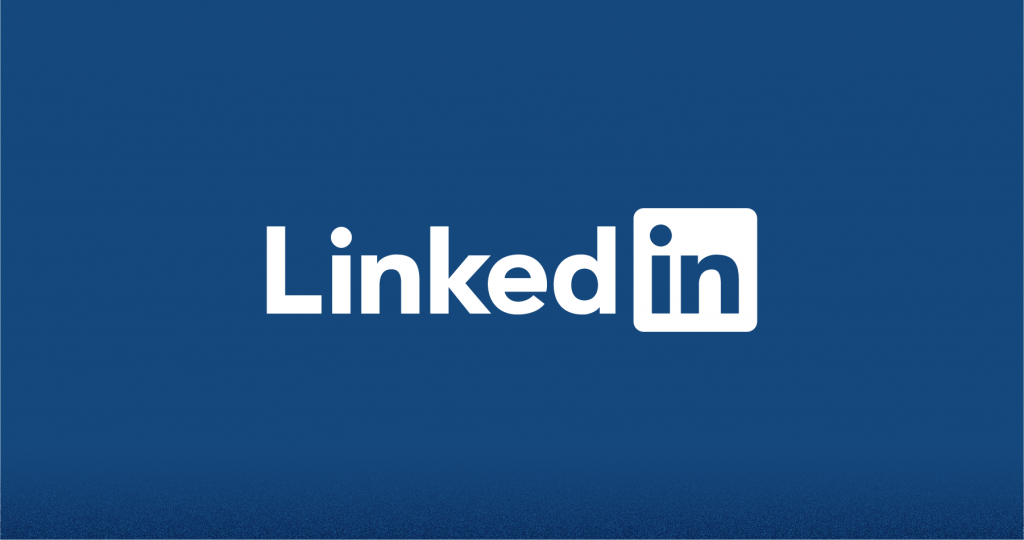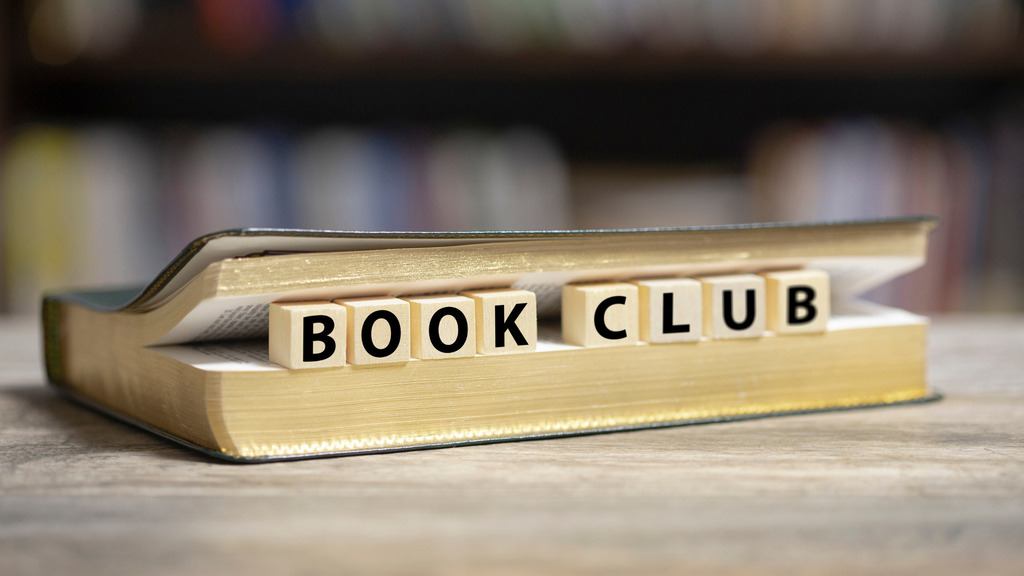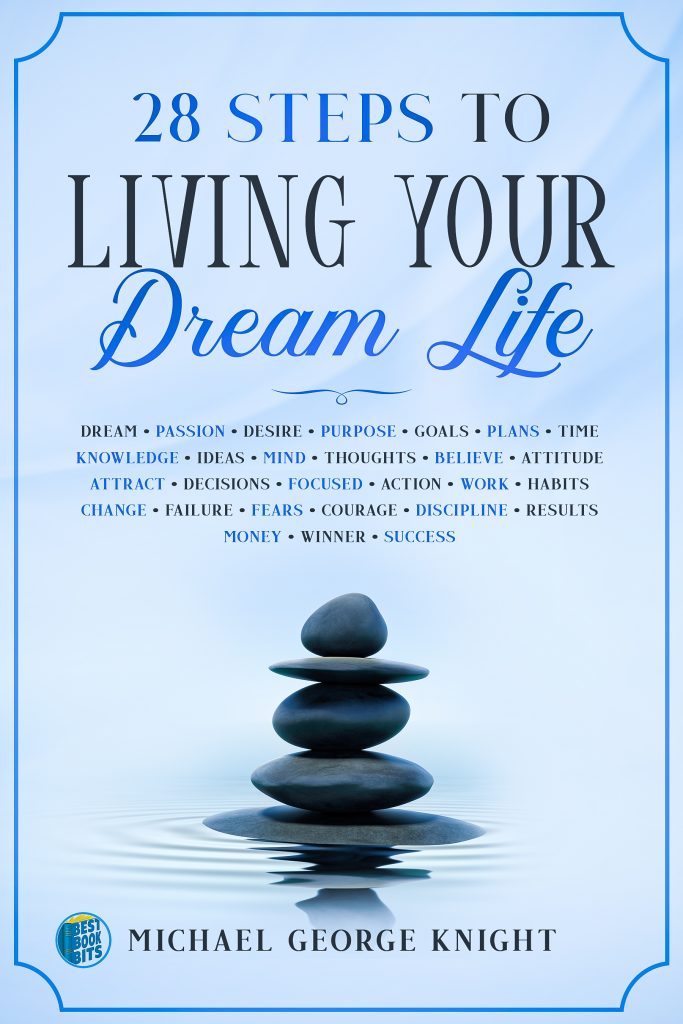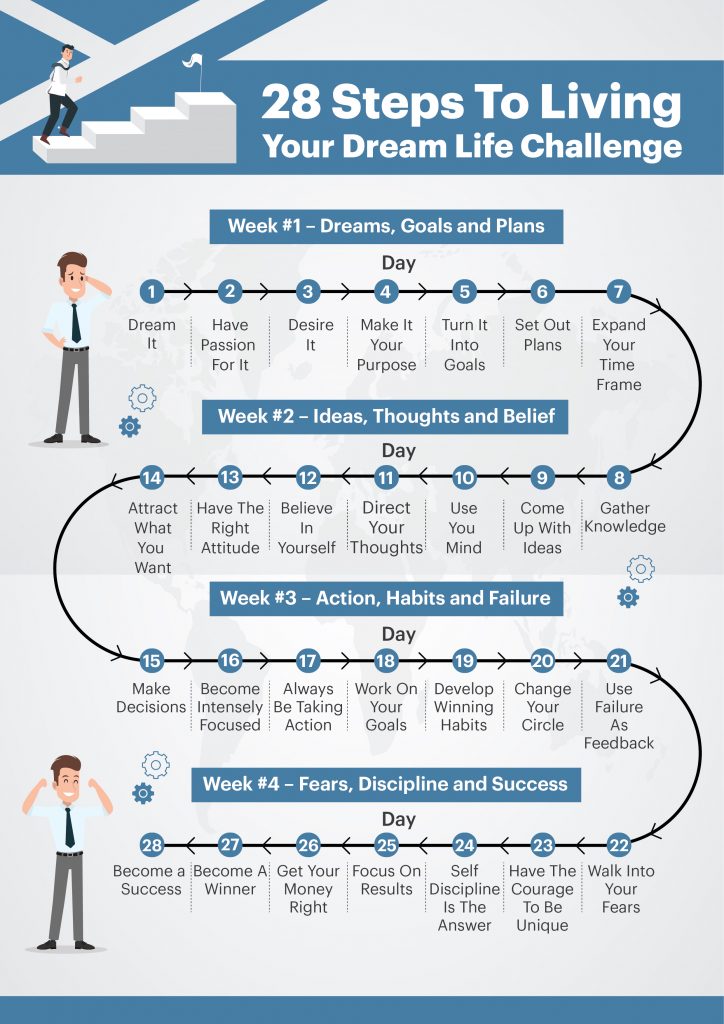
Billy Alsbrooks Blessed and Unstoppable World Tour Melbourne Summary
FOLLOW US HERE > |YouTube | Podbean | Website
- 365 days all in
- What did we do?
- What do I need to get back up from?
- Who is suffering right now because I am not the best version of me?
- How do I put myself to do uncomfortable things every day?
- Your future is too important to let fear stop you.
- 1440 minutes a day, what are you doing with them?
- 2 – 3 sentences grave marker, headstone
- 2 – 3 paragraphs sum whole life up, wake, newspaper
- How do you want to be remembered?
- Why am I doing what I am doing?
- Legacy, what do I want to be remembered for?
- Get 10-15 minutes with God and ask was the life worth living, fast forward your life 20 years from now.
- Dream to the highest level of what you can do?
- Write your headstone.
- Get clarity, it gives you power.
- Choose the flame that burns the legacy.
- More impowering questions
- Questions dictate your focus?
- Emotions, vision, gods vision
- Action, power of the tongue
- How do you define success?
- Greatness made you
- God has more for us on the inside
- Who do you use the gift for
- The right message, gods message
- Uneasy & uncomfortable
- How uneasy am I willing to be!
- Common people use common questions
- Champions ask champion questions
- God will make good
- Part 1: Born to Now. Part 2. Now to Death. You decide. What are you going to do. All in on me 365 days. Dream bigger
- 8 areas
- 1) Health
- 2) Finances
- 3) Marriage
- 4) Family
- 5) Relationship
- 6) Professional Life
- 7) Spiritual Life
- 8) Impact
- Need vision out of marriage and relationship
- What is it that we want?
- Change the words you use in that area
- The words are creating the environment you are living in
- What if we did something?
- How vulnerable are we willing to be?
- Uber works with exactly where you want to go. Life buffers to make it a reality.
- Get the right question introduced into the environment.
- Write the last chapter first. I know where I am going with my story.
- Get the right slogan, Nike, Jordan. Just do it, not just think about it.
- Blessed and unstoppable.
- March 16, America shut down Covid.
- Don’t be held hostage by fear.
- Broken focus is the number one reason for failure.
- You build success between the ears.
- 150 questions before starting to build a house.
- Blueprint needs to be approved before a permit.
- Start living with intention.
- Grow, thrive or multiply. Your enemy will attack.
- The enemy only attacks that he fears.
- Put fear into the enemy, attack him with your actions.
- Where in my life am I struggling the most?
- What your biggest challenge area.
- The world will give you to the degree you know yourself.
- You settled because you didn’t know your worth?
- What are you currently settling for?
- What am I most passionate about?
- Start the business anyway.
- Dreams bloom in the fertile soil of expectations.
- Pray for favor.
- Who can I help today?
- Where am I living mentally, past or future?
- Don’t be a vessel of destruction with your mouth.
- Panic attacks, PTSD, enemy is waring with me. Because he knows what god is going to do.
- Time doesn’t heal, dealing with issues heals it.
- Don’t forget your identity.
- The enemy is whispering when you are taking to God.
- Have you ever cut a deal with God?
- It’s not about me & I, the kingdom work is you and him.
- Sometimes you pray and boom god moves; other times you just have to trust him.
- Struggle is a language, connect with the language of struggle with others.
- Identity & Affirmations
- Who am I? A spiritual entity having a human experience.
- Know what they want, how they want it, the greats know.
- What lie have I brought into about me?
- Doubt and fear are the best salesman the enemy has.
- 15 minutes a day get alone with God, relationship. Talk directly to your source and maker.
- Take it to the maker, talk with source.
- What’s my purpose?
- Those who seek the lord sees all things.
- Can you dedicate 15 minutes
- Can God trust me with what I am asking for.
- Read 1 page of proverbs every day. King Solomon wisest man to ever live.
- Google bible verses on finances
- What makes me angry and brings me to tears.
- 2017 YouTube, 500 videos, 1 video a week.
- The level you can see is the level of your dream.
- Stay focused on the daily process not the number.
- The enemy can use good friends against you.
- The enemy will insert doubt.
- The little me and big me on each shoulder.
- What’s my purpose.
- One viral video, millions champion video.
- 2016 book published, blessed and unstoppable.
- God knew what was coming.
- People have a mirror problem.
- When you look into the mirror, who do you see.
- We are wonderfully and fearfully made.
- We have a gift to offer the world.
- What gift do we have to offer the world.
- Success requires you to be uncomfortable.
- Where am I playing it safe.
- God still moves.
- How many suffer because I wasn’t ready?
- God vs Devil.
- If you hear me, I’ll tell them who did it.
- Who am I called to? Some people you try to give a ticket can’t come. Last season people you can’t bring into this season.
- If you can’t speak blessing into your life, god will bring someone into in your life to bring it.
- Motivational video on YouTube to strengthen your days.
- Feed your mind with the great.
- You are going through things now for the victory of the future.
- The enemy will bring people into your life to speak curses over you to downgrade your dream.
- Who is in my life putting my dream in jeopardy?
- Questions will take you into the future.
- What is my microphone? What is my calling.
- What you can’t see, you are not qualified for.
- Practice 10,000 hours.
- God will always confirm your worth.
- What are the 48 steps you need to take.
- It’s faith that is going help you through the door.
- Detox Emotionally
- Don’t harbour resentment for other people
- We put ourselves in prison when we resent others
- Who is the number one person I need
- Unforgiveness is blocking your success
- Don’t carry around the emotional backpack
- What the enemy can’t do on the outside, he is hoping you will do the inside, emotional termites eating you alive.
- Success plane. How many emotional bags are you bringing on.
- Who is it you need to forgive.
- You don’t need someone’s apology to set you free.
- Who do you need to call up?
- Who do you need to forgive?
- You don’t need to be bitter.
- How am I going to respond? The power is in the response.
- Lord, show me who I am harboring resentment for?
- The hidden is the most dangerous.
- There is a difference between forgiveness and denial.
- Who do I need to forgive, names down.
- What positive qualities did they bring to your life.
- Pray a blessing over the list.
- What is your ministry?
- Write a list of the 5 people you have wronged?
- Love them from a distance.
- Have I forgiven me yet?
- Why will I not accept the gift of grace.
- Let it go because you are worth it.
- What God is going to do is beautiful.
- I will operate in power now and not bitterness.
- Mindset
- Romans 12:2 advises Christians not to conform to the patterns of this world but to be transformed by the renewing of their minds. This mindset shift involves consciously changing your thoughts, beliefs, and attitudes to align with God’s truth, leading to a transformation that enables you to discern God’s will.
- Key concepts from Romans 12:2
- Do not conform:
- This means actively resisting the pressure to adopt the values, standards, and behaviors of the surrounding culture that oppose God’s ways.
- Be transformed:
- Instead of conforming, you are called to a deep, internal change that alters your thinking and perspective, shaping your character and who you are.
- By the renewing of your mind:
- This is the catalyst for transformation. It’s an ongoing process of tearing out old ways of thinking and replacing them with God’s truth through faith and the Holy Spirit.
- To prove God’s will:
- The ultimate goal is to be able to clearly understand and approve of what God’s will is—his good, pleasing, and perfect will for your life.
- Starts with your mind:
- Transformation begins not with outward actions, but with a deliberate and conscious effort to change your thought process and program your mind with what God says
- How can I reframe what happened.
- What do I need to reframe in my life right now.
- What can I control?
- Turn tests into testimony.
- Tragedy into triumphs
- What event in the past is keeping me in bondage right now?
- This is the great reset, everything in the past was learning.
- How am I going to respond.
- I’m not me anymore.
- It’s not what happens to me in life, but how do I respond.
- WhatsApp story, rejection $300k for Facebook job. Builds own app WhatsApp, sell it Facebook for $21.8 billion.
- That no in life takes you to the promise land.
- Be bigger than failure. Failure can’t hold me
- What thoughts and beliefs are holding me back.
- What belief do you need to get past.
- If you have a million-dollar dream don’t be in a $20 environment.
- Positioning, where am I planted? Can good things happen where I am at?
- You have right dream but wrong environment.
- Who is around us putting my dream in jeopardy?
- Who is my five? Who do you hang out with the most?
- You are sum total of people you hang with.
- Become a conscious capitalist.
- You need winners on your team? Who is my weakness link?
- 1) Vision 2) Identity 3) Detox 4) Mind 5) Sight
- What’s my why? Your why must be greater than any obstacle.
- Marriage, why are we truly together?
- Where am I not being honest with myself.
- The truth will set us free.
- Find a why you can run through walls with.
- How bad do I want it?
- What must I stop doing?
- What’s the excuse I keep giving?
- Failure is not an option.
- The only option is forward.
- How many no’s can I take to be successful
- Navigate through the world of no’s
- Own the 30 seconds.
- Learn to control your framing.
- What is it I want most out of life?
- Is my why bigger than my feeling.
- Desensitize yourself in the environment of fear.
- You go through a season of struggle who is flying the plane? God
- Learn the lesson of the struggle of season for the season to end.
- Success is a marathon of consistency of daily steps.
- How can I make an impact on the world.
The Starbucks Experience by Joseph Michelli | Book Summary
FOLLOW US HERE > |YouTube | Podbean | Website
The Starbucks Experience: 5 Principles for Turning Ordinary Into Extraordinary by Joseph Michelli
More than Free Refills
Starbucks Coffee, Tea and Spice opened in 1971. It was different from other coffee shops because it offered customers high-quality beans, careful preparation of drinks, nice stores and good design. Since then the company has grown to have 11000 stores in 37 countries with 35 million customers visiting Starbucks weekly. Today they buy about 4% of all the coffee sold worldwide.
Starbucks went public in 1992 and is now worth $650,000 if you invested $10,000 then. It opens a new store somewhere in the world every day of the year and has 500 stores in Japan including the busiest Starbucks in the world. In some places it has opened stores across from one another.
Starbucks has been a successful company because it focuses on its employees, products, customers’ experience and relationship with the community.
The Starbucks Experience
Starbucks has become a top global brand by adhering to five key principles. First, customize the experience for your customers. Second, focus on every aspect of the job and never lose sight of what’s important: your customer’s point of view. Third, do unexpected things to keep people coming back (surprise and delight). Fourth, learn from mistakes; don’t be afraid to make them. Fifth and finally, leave a lasting impression with your work so that people remember you long after they’ve left the store.
The Partner Ethos
Starbucks’ success is largely due to two of its corporate values:
Employees are partners, and they’re encouraged to contribute ideas for improving the company. They also help develop new products, which is a huge part of Starbucks’ success.
Starbucks executives believe in profit sharing. Employees receive company stock and medical insurance because of their belief that employees should be rewarded for the profits they help generate. The chain also gives bonuses to hourly workers who perform well above expectations.
Starbucks spends the most money on employee training and has one of the lowest turnover rates in its industry. They also have a high job satisfaction rate compared to other fast-food chains, which is likely due to their extensive worker training program.
Starbucks pays great attention to their employees and makes important changes quickly. When an employee group wanted to extend paid parental leave for adoption, it was changed within 2 weeks.
Principle One: “Make It Your Own”
Starbucks founder Howard Schultz has said that he is not in the coffee business but rather a people business. He believes it’s important to connect with customers and their communities. In order to do this, Starbucks teaches its employees five principles: 1) Be welcoming; 2) Engage in conversation; 3) Listen actively; 4) Anticipate needs; 5) Be empathetic.
“Be genuine” – Partners must be active listeners and good observers. Noticing that a new customer looked as though she was about to cry, a barista offered her a toffee nut latte. She thanked the barista for his kindness by sending him flowers.
In the business world, it’s important to be considerate of others and the environment. For example, we can reduce carbon dioxide emissions by using wind energy and planting trees in communities.
Nespresso partners are trained in coffee. They learn about tasting, handling and service through internal publications and classes. It ensures that they use the product they sell as well as motivating them to share their passion for coffee with others! Additionally, some Nespresso partners become “Coffee Masters” by enlisting in a three-month program consisting of lectures and exercises.
“Be involved.” Staff at one store realized that they had many deaf customers. To help them, the staff took lessons in American Sign Language and adjusted their work flow to accommodate those customers. Other stores have done similar things as well.
Principle Two: “Everything Matters”
Retail businesses either do well or fail because of their details. Therefore, Starbucks focuses on every detail of its business, such as image, employee concerns and product quality.
Starbucks has an in-house architecture group that designs its stores. The company uses store design to build its brand. One enthusiastic customer claims, “Starbucks could very well operate without even selling coffee. They could charge an entrance fee and offer nothing else but a room and mellow Bob Marley music softly playing in the background, and people would still come.”
Cleanliness is important for customers. Starbucks has a checklist that all stores are required to follow, and workers must come out from behind the counter at least every 10 minutes to check their work environment. One barista said she liked this requirement because it gave her the chance to interact with customers and clean up their area more often.
Starbucks customers are particularly appreciative of the clean restrooms. One customer said: “The music, drinks and wireless aren’t that important. What I really appreciate is the cleanliness and availability of their toilets.”
Starbucks is aware of the importance of packaging. In fact, it spent two years developing a sleeve for its cups out of recycled paper so that customers can carry their coffee without burning themselves. It also introduced a takeout cup made from recycled materials.
Starbucks found a way to keep coffee fresh for up to six weeks by reducing waste.
Principle Three: “Surprise and Delight”
People like surprises. The Rueckheim brothers introduced Cracker Jacks at the World’s Columbian Exposition in Chicago, and sales grew when they advertised a surprise prize inside every box. Psychologists say that people need security and safety, but unexpected things keep them from getting bored. Many companies try to avoid surprising their customers, but Starbucks uses surprises to build customer and employee loyalty.
Starbucks has given away ice cream in the past. For example, they shipped it to 6,000 locations by Federal Express to celebrate National Ice Cream Month. They also gave away books and displayed artwork at stores depending on what customers wanted.
Principle Four: “Embrace Resistance”
It’s impossible to please everyone. Starbucks addresses mistakes and problems by taking responsibility for them, preventing them from happening again, and changing when necessary. The company works closely with some of its critics to develop coffee-buying guidelines that call for good working conditions for farmers and minimize pollution because it buys so much coffee worldwide.
Store managers are the first to hear criticism, because they’re on the front lines. For example, in Beijing, China, a Starbucks store was criticized by government officials for having too many customers stand up and not enough seating. The manager changed that so people could sit down and drink their coffee rather than take it with them. In order to emphasize its community involvement, Starbucks donated $5 million to a Chinese educational fund.
Principle Five: “Leave Your Mark”
Starbucks is a company that aims to be socially responsible and community-oriented. It requires its managers to communicate well with vendors, have high standards for product providers, and to be environmentally conscious. The company’s mission statement says it will develop innovative solutions to problems, treat its employees well, and meet fiscal responsibilities.
Starbucks is a socially responsible company that uses a triple bottom line to measure its success. The senior vice president of corporate social responsibility works with the board and the Starbucks Foundation to find ways to contribute to communities where stores are located.
Starbucks also has a low turnover rate. Studies have found that companies with high levels of community involvement experience lower turnover rates. When employees work together on charitable projects, they build team spirit and deepen their connections to the community, each other and Starbucks.
The Content Code by Mark Schaefer | Book Summary
FOLLOW US HERE > |YouTube | Podbean | Website
📘 The Content Code by Mark Schaefer | Book Summary
Unlock the secrets to creating content that truly spreads! In this summary of The Content Code by Mark Schaefer, we explore powerful strategies to stand out in today’s overcrowded digital world. Learn how to turn ordinary content into shareable, influential ideas that build trust, loyalty, and brand awareness.
Whether you’re a marketer, creator, or business owner, this book summary reveals the hidden codes behind audience engagement, social sharing, and content ignition.
🔥 In this video, you’ll discover:
Why great content alone isn’t enough anymore
The 6 key elements of the Content Code
How to grow true emotional connections with your audience
Practical tips to boost your content’s reach and influence
If you want your content to get noticed, get shared, and make an impact — this summary is for you.
🎧 Listen, learn, and level up your content strategy today!
The Content Code: Six Essential Strategies for Igniting Your Content, Your Marketing, and your business
by Mark Schaefer
Named world’s best SEO book by Book Authority and one of the top five business books of the year by INC magazine! Mark has delivered a path-finding book exploring the six factors that will help you break through the overwhelming wall of information density to win at marketing now … beyond content, beyond social media, beyond web traffic and Search Engine Optimization. The Content Code starts where your current marketing plan ends, and provides the launch code for next-level success. The book dives deeply into the true value of social media marketing and the steps companies need to enable to achieve measurable results. A pioneering book that explores the psychology of sharing, it is also highly practical, offering hundreds of ideas that can be used by organizations of any size and any budget. Book highlights include in-depth explorations on the connection between brand and content transmission, a focus on audiences that will move content, practical steps to build “shareability” into all your content, and the new role of promotion, distribution and SEO in a very competitive, digital world. Unlock your business value, unleash your audience, and uncover the six digital secrets of The Content Code.
First the bad news.
People don’t want to share your content, in general. Research shows people don’t usually share content they’re reading online, even if it’s great content. For example, an average Twitter user retweets only one in 318 content links they receive. Facebook reports just one-half of one percent of those who see a content share it. These staggering numbers suggest a miniscule number of the most active users is critical to spreading your content online.
Using the Psychology of Sharing
There’s a lot of hype around creating that people want to share it. Instead of buying into the hype, focus on reliable research that provides accurate insights and even competitive advantages. If there’s any organization on earth that wants to attract page views, it’s a newspaper, so let’s pay attention to how they use the psychology of sharing.
Psychology of sharing #1 To be useful
The number one reason people share is to bring informational and entertaining content to others. More than 90 percent of people carefully consider how the information they share will be useful to others.
Psychology of sharing #2 To define ourselves to others
More than half of people share content to give people a better sense of who they are and what they care about.
Psychology of sharing #3 To grow and nourish relationships
Three in four people share information online because it lets them stay connected with the people they care about.
Psychology of sharing #4 Self-fulfilment
Three in four people share content because it allows them to feel more involved in the world.
Psychology of sharing #5 To get the word out about causes and brands
Three in four people participants share content to rally clothes about a cause, a company, an idea they believe in.
As you read the list, it probably occurs to you that sharing content is a meaningful act, a very personal, intimate and important gesture. It’s nothing trivial at all.
The decision to share content is often a sign of relationships. A relationship with the source, a relationship with a network… even a relationship between the person and a piece of content. Igniting content is a symbol of kindness and caring and a reflection of who we are.
22 practical ideas to unlock the content code
Idea #1 Push the right buttons
Add social sharing buttons to your content site. A recent study showed content with sharing buttons is 700 percent more likely to spread than those without.
Idea #2 Tear down those walls.
Consider removing those singing in with an email or trading even more personal information for content. Those barriers turn many people away. The number varies widely by industry but research shows between 25 percent and 90 percent turn away.
Idea #3 Be entertaining, funny and inspiring.
Happiness is an important driver for social media sharing. Think about the content you like to spread to your friends or online community. A lot of it is joyful, funny or entertaining, right?
Idea #4 Go long.
Every marketing trend points to a need for short, concise content. Yet, the research suggests the longer the content, the more shares it may get, with pieces of 3,000-10,000 words getting the highest average shares. So write short easy-to-read paragraphs and use subheadings and bullet points to break up the text.
Idea #5 Aim for conversation, not controversy.
Without doubt, controversy ignites content. But it’s not a sustainable strategy. Controversy can be used most effectively when it’s associated with a positive cause.
Idea #6 Remember that the most important part of your content is not your content.
Stop writing sucky headlines. You must craft a descriptive, emotive, accurate, catchy and tweet-able headline. This is so fundamental yet it remains a challenge for most creators.
Idea #7 Be visual
Read a piece of text and three days later you’ll remember 10 percent of it. Add a picture and the number increases to 65 percent. Reading is inefficient for humans. Your brain sees words as lots of tiny pictures and then you have to identify features in the letters to read them. It takes time.
Idea #8 Ignite with lists and infographics.
Research suggests a list or an infographic can double your chances that people will share your content. Both lists and infographics intrigue while still promising quick answers.
Idea #9 Boost social sharing with suggested stories.
It takes a lot of work to get someone to visit your site, so once you get them there, do what you can to keep them there. A great way to do this is to refer them to other relevant articles from your content site.
Idea #10 Revive content.
One depressing aspect of content creation is it’s short shelf-life. Content can be great and old even though it’s only two weeks ago. That’s why you need to invest in more evergreen content. There aren’t any fast and hard rules about creating evergreen content but every other month seems about right.
Idea #11 Determine the best posting time.
Don’t fall for blog posts with lists of the best times to post. The fact is it ultimately depends on a number of factors and you need to do the work to figure out the best time for you.
Idea #12 Repurpose content.
Evergreen content is a versatile workhorse and can be repurposed anytime to create new information for your readers.
Idea #13 Focus on feedback and reviews.
Reviews offer powerful social proof that can make or break your business, if you’re not careful. If we’ve never visited a business before, we almost always turn to this crowd-sourced content to decide if we should give a try.
Check out: 10 ethical ways to build social proof in your content
Idea #14 Be practical.
Sharing something useful with others is a quick and easy way to help people out, even if we’re not in the same place. Parents can send their kids useful advice even if they’re miles away. Passing along actionable content strengthens social bonds.
Idea #15 Learn to use hashtags effectively.
Hashtags are arguably the most important innovation in the history of social media. The humble hashtag has become the index card system of the web. It’s social media’s most important way to organize information, discover trends, content and ideas.
Idea #16 Make it look good.
How your content looks is also an important indicator of whether it’s share-worthy. When you head out for a night or fine dining, you don’t expect an expensive steak to arrive with a paper bag and a packet of ketchup. You expect premium content to look like premium too.
Idea #17 Concentrate on brand new research and ideas.
Many of your readers share your content because of the intrinsic value of helping others. Focusing your content on new insights from research, quotes and exciting new ideas will appeal to this psychological aspect.
Idea #18 Encourage comments.
Here’s are some ways:
- End your post with a question.
- Ask specifically for comments.
- Mention influencers with large audiences.
- Notify potential commenters.
Idea #19 Tap into FOMO.
Many people are obsessed with being constantly connected to the web because of FOMO (fear of missing out). Tap into this fear to get people to click and share. One way is to use negative words like ‘stop’, ‘avoid’, and ‘don’t’. Write “30 things to stop doing to yourself” instead of “30 things to start doing for yourself”. The former reasons everyone to find out if they’re missing out something.
Idea #20 Help readers spread ideas to help others.
Research found that the best predictor of buzz was in the brain regions associated with social cognition – thoughts about other people. You’d expect people to be most enthusiastic about spreading ideas that they themselves are excited about.
Idea #21 Include ‘click to tweet’ boxes in your blog post.
This is a fun and easy way to increase the number of tweets you get on your article. There’re several free services that allow you to embed tweetable quotes right into your blog pots.
Idea #22 Add your personality.
To stand out from a sea of content, you need something original. To be original, you need to inject your personality into what you create. Consider these two headlines:
- Five common mistake son Twitter (or) My biggest Twitter catastrophe
- Three great recipes for corn (or) How corn saved my rehearsal dinner
The first headline could have been written by anyone. But the second one comes from the perspective of a real person. It sounds human and connects with humans.
FOLLOW US HERE > |YouTube | Podbean | Website
Seedtime and Harvest by Neville Goddard | Book Summary
FOLLOW US HERE > |YouTube | Podbean | Website
Discover the timeless spiritual principles in Seedtime and Harvest by Neville Goddard — one of his most profound teachings on imagination, faith, and the creative power within. This book summary explores how your thoughts are the seeds that shape your reality, and how conscious imagination leads to a fruitful “harvest” in life.
🌱 In this summary, you’ll learn: The law of cause and effect through imagination How belief determines what manifests in your world The secret to planting mental “seeds” for success and abundance How to align your inner world with your desired outer results If you’re interested in manifestation, spiritual growth, or Neville’s teachings, this summary will give you clear insights to apply in your daily life.
🎧 Watch till the end to understand how imagination truly creates reality!
💬 Don’t forget to like, comment, and subscribe for more Neville Goddard book summaries and spiritual teachings.
Seedtime and Harvest by Neville Goddard
- The Bible is written in the language of symbolism and is a revelation of the laws and functions of the mind.
- The purpose of the book is to show how to succeed in realizing one’s desires through the conscious, voluntary exercise of imagination in accordance with the laws of the mind.
- The “Four Mighty Ones” in a person are four different aspects of their mind that can be equated with the Tetragrammaton symbol of the creative power in man – “I AM.”
- The “Four Mighty Ones” can be compared to the four most important characters in the production of a play: the producer, the author, the director, and the actor.
- The producer suggests the theme of a play in the form of a wish, the author writes the script, the director rehearses and coordinates the actors, and the actor brings the script to life.
- To realize one’s desires, they must first be clearly defined, then the script must be written, and then the desire must be rehearsed and acted out with conviction.
- The secret to success is to be the actor and not the spectator, to believe in one’s script and act it out with enthusiasm and conviction.
- Cain and Abel are personifications of two distinct functions of consciousness: the limited perception of the senses and an imaginative view of the world.
- Cain represents a passive acceptance of life-based on appearances and leads to discontent or disillusionment, while Abel represents a vision of fulfilled desire that lifts a person above the evidence of the senses.
- The Lord, or consciousness, rejects Cain’s gift and delights in the gift of Abel, which is the active use of imagination on behalf of oneself and others.
- Faith is the belief in something that is not seen and sacrifices apparent facts for unapparent truths.
- Through the power of imagination and the persistence of an assumption, even if denied by the evidence of the senses, it can harden into fact.
- The story of the woman who imagined her nephew’s birthmark away illustrates the power of imagination and the importance of persistently holding an assumption.
- The power of imagination and the persistence of an assumption can be applied to any desire or goal.
- In a dream, Jacob had a revelation of the ascending and descending levels of consciousness, or a scale of values, which gives meaning to everything in the outer world.
- The meaning of an object or event is a direct index to an individual’s level of consciousness.
- The objects and events in the world occupy a lower level of significance than the level of meaning that produced them.
- Most people try to explain higher levels of significance in terms of lower levels of what and how things happen.
- There are three levels of awareness for an accident: the event itself, how it happened, and why it happened.
- On the ascending scale, each higher level brings us closer to the truth about an event.
- The Lord or meaning is the creator and cause of the phenomena of life.
- The individual’s level of consciousness determines their perception of the world.
- By understanding the ascending and descending levels of consciousness, an individual can bring about change in their life.
- Life is a game played on the playing field of the mind.
- The aim of the game of life is to increase awareness and achieve our goals and desires.
- The rules of the game of life are simple but take a lifetime of practice to use wisely.
- One of the rules is that what we think in our hearts influences our reality.
- Inner conversations shape our outer circumstances and we must be aware of our mental activity to play the game of life successfully.
- The power of the word cannot be broken and inner conversations based on already having something can lead to its manifestation.
- The fault for not achieving our goals lies within ourselves, not in external circumstances or other people.
- We can achieve our goals by using the power of the word and focusing on the goal, not the competition or obstacles.
- The serpent is a symbol of the power of endless growth and self-reproduction, and man should learn to shed his old self and grow a new environment.
- Man’s outer world and conditions are the out-picturing of his inner state of consciousness.
- The serpent was also associated with the guardianship of treasure or wealth, and man should awaken the power of his imagination to grow and outgrow and find his treasures.
- The spiritual body of imagination is not interlocked with the physical body and environment and can withdraw to imagine a desired state in hope that it will solidify as a new environment.
- To prepare for a new environment, a person must construct a life-like representation of it in their imagination and visit it repeatedly until it feels natural, then return to the physical world.
- The new environment will then manifest in the physical world as the person’s new circumstances.
- The symbols of water and blood in the gospel and Epistle of John represent psychological truth and living a life according to that truth, respectively.
- Literal-minded individuals who do not discover the hidden meaning behind symbols of truth remain on a lower level of understanding and do not experience true transformation.
- The “cup of water” (psychological truth) must be turned into “wine” (active application of truth) in order to truly taste and experience it.
- Salvation and transformation come from actively using imagination to appropriate a specific state of consciousness.
- This state of consciousness is a man’s demand on the infinite storehouse of God and will manifest in his life as his new environment.
- The Bible is a collection of parables that reveal the laws and purposes of the mind of man.
- The parables should be interpreted mystically to reveal deeper meanings.
- The advice to the disciples to not provide shoes for their journey symbolizes the importance of not relying on intermediaries between oneself and God and taking personal responsibility for one’s actions.
- Imagining evil is not enough, one must actively and lovingly use their imagination to visualize well in order to clothe and feed Christ (awakened Human Imagination).
- The chariot in the Song of Solomon symbolizes the mind, with the pillars of silver representing knowledge, the bottom of gold symbolizing wisdom, and the purple covering representing the incorporation of love and truth.
- The story of Joseph’s chariot also symbolizes the mind, with the tributaries following him representing the thoughts and actions that follow a person.
- Purple is a symbol of love and truth and is used to clothe the incorruptible four-fold wisdom of the mind.
- The “wood of Lebanon” symbolizes incorruptibility and is used to make the chariot, representing the importance of building a mind that is not susceptible to corruption.
- The “wedding garment” in the parable of the wedding feast represents the individual’s purified and illuminated mind, which is necessary for entry into the kingdom of heaven.
- The parable of the sower and the seeds represents the planting and growth of thoughts in the mind, with the different types of soil representing the receptivity of the mind to these thoughts.
- The parable of the tares among the wheat symbolizes the coexistence of good and evil thoughts in the mind, with the separation of the tares and wheat representing the eventual victory of good over evil in the mind.
- The mustard seed in the parable represents the power of imagination to grow and transform.
FOLLOW US HERE > |YouTube | Podbean | Website
What the CEO Wants You to Know by Ram Charan | Book Summary
FOLLOW US HERE > |YouTube | Podbean | Website
Discover the key principles behind business success with What the CEO Wants You to Know by Ram Charan — a powerful guide that breaks down how great leaders think, act, and make decisions. In this book summary, we explore the timeless fundamentals every CEO — and every employee — should understand: cash flow, margins, velocity, growth, and customers. Whether you’re an entrepreneur, manager, or professional aiming to think like a CEO, this summary will help you see the bigger picture, make smarter business decisions, and understand what truly drives performance in any organization.
📘 Key Takeaways: Learn how CEOs simplify complex businesses into core drivers of success. Understand how to think strategically like a leader. Discover the importance of financial intelligence in decision-making. See how execution, cash, and growth connect to long-term success.
👉 Watch till the end to master the mindset that top CEOs use to run high-performing companies.
💡 Perfect for: Entrepreneurs, business owners, managers, students, and anyone looking to level up their business thinking.
What the CEO Wants You to Know: How Your Company Really Works by Ram Charan
Completely rewritten for today’s business world, What the CEO Wants You to Know, expanded and updated, written by bestselling author Ram Charan, describes the fundamentals behind every business, from street vendors in Mumbai, to Fortune 500 companies. Drawing on stories from Uber, Amazon, Apple, Toyota, Netflix, Lyft, The Limited, Walmart, GE and Starbucks, Charan, in the most accessible language imaginable, explains the ins and outs of how companies work, from gross revenue and operating costs, to inventory and cash flow, from turnover, profits and margins, to return on capital and accounts payable and receivable, from product quality to sales. A classic in the business literature, with hundreds of thousands of copies in print, this short and engaging book is like a miniature MBA course between covers.
For everyone who wants to master and understand the levers that drive a successful business, What the CEO Wants You to Know is the perfect answer.
What the Best CEOs and Street Vendors Share
When it comes to running a business, street vendors and the CEOs of the world’s largest and most successful companies think exactly the same way. The complexities of their businesses are different; their approach is not. Anyone who figures out a clear way to make money has business acumen, or what some people call ‘street smarts’.
4 Things Every Company Needs to Master
#1 Customers
It all starts here. If you don’t have a customer, you don’t have a business.
At your company, you may talk about the people who buy your products as “customers.” But they may not be the people who ultimately use the product—the “consumers.” It’s important to understand both. When P&G develops new products, it tries to understand the needs and wants of the consumer, but many of its processes—logistics, discounts, merchandising—are geared to serve customers such as Target.
As you think about both consumers and customers, keep it simple and specific. What are consumers buying? It might not be the physical product alone. Maybe they’re buying reliability, trustworthiness, convenience, service, or the entire customer experience, whether in the store or online.
#2 Cash Generation
Cash generation is one of several important indications of your company’s moneymaking ability.
Don’t lose sight of cash generation—the difference between all the cash that flows into the business and all the cash that flows out in a given time period.
An astute businessperson wants to know: Does the business generate enough cash? What are the sources of its cash generation? How is the cash being used? Businesspeople who fail to ask these questions and/or don’t figure out the answers eventually stumble.
Cash generation can be a problem for even the largest companies for any number of reasons: margins are too low, expenses are too high, or it takes too long to collect receivables, for example. The automobile industry has a history of having problems with cash generation. Chrysler ran out of cash in the early 1980s; Volkswagen did, too, in the late 1980s. And the classic example is probably GM, which was forced to file for bankruptcy in 2009. When you don’t have enough cash and you can’t borrow, you go bankrupt.
Running out of cash is also a common problem for start-ups in Silicon Valley and elsewhere. It takes longer to get the product into the marketplace than expected, or the costs of getting under way are substantially higher than budgeted.
No matter what kind of organization you work for—a for-profit company, a nonprofit, or a government agency—understanding where the cash comes from and where it goes is important. All people in an organization, not just those in finance, need to know how their job affects cash generation (or consumption) if their career is going to thrive.
#3 Gross Margin and Return on Invested Capital
A key part of cash generation is understanding gross margin.
Gross margin is calculated by taking the total sales for the company and subtracting the costs directly associated with making or buying it. Those are things such as the cost of the material used to create the products along with the direct labor costs.
In the early days of the personal computer, the PC industry enjoyed gross margins approaching 38 percent. Then came the era of intense competition. The price of a PC fell dramatically, which shaved gross margins dramatically to 12 percent. To survive, PC makers had to change their entire business approach. IBM got out of that business, and Dell went private, which relieved it of the pressure from shareholders to deliver quarterly earnings as it shifted its strategy.
Another key part of cash generation is understanding return on invested capital. Return on invested capital is calculated by taking the net income and dividing it by total capital – your money plus any money you’ve borrowed. Keeping track of this number is critical because there is often a perfect correlation between how well a company uses its capital and how its CEO is perceived.
#4 Growth
Today, no growth means lagging behind in a world that grows every day. Either you are growing or you are dying.
But growth for its own sake doesn’t do any good. Growth has to be both profitable and sustainable. Sometimes senior management inadvertently encourages unprofitable growth by giving the sales force the wrong incentives.
One $16 million injection molding company rewarded its sales reps based on how many dollars’ worth of plastic caps they sold; they were not accountable for profits. Everyone was excited when the company landed $4 million of new sales from two major customers, but these large contracts were on slim margins, not enough to generate the cash needed to fund the sales.
This Is What the Best CEOs Do
Superior CEOs use their business acumen to test the logic of their priorities and the path they are setting the business on. They consider what will happen to the company’s moneymaking as a result by revisiting the basics—customers, cash, return on invested capital, and growth—as they shape the future.
Take, for example, Steve Jobs and the invention of the personal computer. The necessary components—the monitor, disk drives, mouse, keyboard, microprocessors, software, and printer—all existed in the mid-1970s. The seeds had been planted, yet Apple caught the office-automation giants like Wang and Digital Equipment off guard when it introduced its first computer in 1976.
Jobs, working with Steve Wozniak, had the ability to see the moneymaking potential of a machine that promised independence and freedom. No venture capitalists were needed to get Apple off the ground. It made money in its first month and hit a billion dollars in sales within ten years. Today revenues are well over $200 billion and the company’s net profit margins average 20 percent.
Execution In a Nutshell
Here’s a quick primer on how to work efficiently:
- Be totally clear on what you want to accomplish.
- Break goals down into time segments (“We will have this done in a week; that in a month”) and milestones (“We know we will be halfway there when we do X”).
- If you run into an obstacle, ask for help.
- Constantly monitor progress, and follow through.
That last one may be the most difficult thing to do. Bright people hate following through. For one thing, they believe it is micromanaging. For another, they think it is somehow demeaning to their subordinates to check up on their work.
But you have to follow through to make sure that what you said is clear and that progress is being made.
The Right People in the Right Jobs
Every business needs the right people in the right jobs. The modern corporation is built on the idea of “professionals” who use their particular talents to help the business succeed. No matter what the job, if the person making decisions is.
Leaders who deliver results consistently over a long period of time are the ones who recognize what an individual can do best. They link the business need and the person’s natural talent. They take the time and effort to place individuals where their strengths can have the most impact.
If you were Sam Walton and you were trying to build your business, how would you select people to run your stores? You would look for employees who truly want to understand the customer and who are fixated on selling reliable goods at a price lower than the competition’s. Making money in the retail business means managing margin and inventory velocity and growing volume. If you can’t find people who understand that, you will never achieve your dream of becoming a retailing giant.
Sam Walton carefully selected people who met those criteria, and he developed and trained them. Employees were taught to watch revenues, price, inventories, and customers like the proverbial hawk. And they had considerable autonomy to make decisions and take action.
You want to also consider the mindset of the other person. Does he or she have an inner drive to succeed? Is the person open to change?
For example, you want to know the mindset of a plant manager. If he’s used to two inventory turns a month and you tell him you’re going to thirty turns, how will he react?
Coaching
People who do well in a job also need attention. A true leader expands such employees’ capacity by helping them channel their talents and develop their abilities so they can advance to the next level.
Perhaps you think you give people feedback when you do their annual performance review. In reality, performance reviews are rarely used to develop people. Most of the time they’re simply a way to communicate a salary change based on last year’s performance, or they’re used to justify a promotion. That is not the way to help people grow and develop.
So what is the right way? Building on the person’s strengths with feedback that is honest and direct. No sugarcoating. Use every encounter as an opportunity to coach. The sooner the better.
Your Part in the Big Picture
Link your own priorities to the big picture.
If you’re in human resources, for example, you can help people break out of their silos, and coordinate efforts with people elsewhere in the company to help ensure that the company has the right people in the right jobs.
If you work in information technology, maybe you can create links with customers and suppliers so your company can collaborate more easily.
An in-house attorney can help by keeping up to date with legislative changes globally and staying alert for new opportunities that might arise as a result.
Those in finance can assist with many kinds of decisions—whether to add capacity, how to improve pricing for better margins, where best to deploy cash, and the like—by providing accurate and timely information.
Maybe you can break new ground by coming up with a novel idea that relates to the overall business. Maybe you can help by simply reframing an issue, bringing the underlying assumptions to the surface, and challenging them.
What does it mean to reframe an issue? Here’s an example.
Say you work for a car company and there is a need to cut costs on next year’s model. Put on your businessperson’s hat and ask, “Are there features that customers don’t care much about and that can be eliminated to reduce cost?”
Instead, you can ask what customer needs are not being met. If you can meet them, would that create value, allowing you to raise prices? If so, how would that affect volume and utilization of manufacturing capacity?
Don’t be afraid to take a step back to get a total picture of your business. You always want to look at things from different vantage points to try to broaden the range of moneymaking options. Apply your common sense. And your business sense. You will be surprised how many good ideas you can generate.
It’s Your Turn
Don’t let what you read become just another intellectual exercise. Be prepared to answer this question:
What are you going to do to help your company’s moneymaking efforts in the next 60 to 90 days?
Let the excitement begin!
FOLLOW US HERE > |YouTube | Podbean | Website
The Art of the Click by Glenn Fisher | Book Summary
FOLLOW US HERE > |YouTube | Podbean | Website
The Art of the Click: How to Harness the Power of Direct-Response Copywriting and Make More Sales by Glenn Fisher
Every business making sales online is engaged in a battle to get customers to click. More clicks equals more sales equals a more successful business.
How do you write copy that will encourage more people to buy from you? How do you persuade customers over the line to make that final buying decision? What is The Art of the Click?
The answer lies in the power of direct-response copywriting.
In this entertaining and highly readable guide, copywriting expert Glenn Fisher boils down over a decade of experience to present a huge array of techniques, tactics and industry secrets to improve your copywriting, get more clicks… and ultimately, get more sales.
You will discover:
— The single thing every great writer must do if they want to improve.
— How anyone can learn to write a headline that will stop all potential customers in their tracks.
— Where to find inspiration and how to feed ideas.
— How you can get a customer physically nodding along with every word you write.
— How to avoid waffle and make your copy more succinct.
— How you can write irresistible offers than no one can refuse.
— And much more!
Pick up The Art of the Click now to improve your copywriting. You’ll soon be wondering how you ever made a sale without it…
All great copywriters start here
All great copywriters start at a swipe file – a file that records a copy you have. A swipe file can contain both good and bad copy. Good copy so you can take inspiration and bad copy so you can avoid making the mistakes. That’s the aim of a swipe file – to inspire and to avoid.
The key to keeping an effective swipe file is not just keeping for the sake of it. Analyze each piece of copy in your file using the insights you’ll learn in this summary.
The importance of rote learning
When it comes to finding successful long copy sales letters, a good resource is affiliate networks like Clickbank and JVZoo. Put it simply, they’re a marketplace for people to sell their goods and in doing so, you’ll find hundreds of good long copy sales letters there. Not all of them are good but you can see from the sales figures which ones are worth looking at.
Understanding your audience
Write with a specific reader in mind. The more specific you can be around this reader, the better your copy will be. In targeting your copy at a specific person you already know, your copy will sound more human, authentic and instantly relatable to a wider audience.
If the product is intended for an older generation, write as if you’re speaking to your granddad. If it’s intended for a younger generation, write as if you’re speaking to your niece.
Doing your research
When researching for a copy project, split your job into two parts.
Part one is the research itself. This is where you read books and look up social media and the Internet. At this part, you’re not really an expert and because you’ve only looked at stuff online, everything is potentially interesting to you. Once you’ve done your part one, you’ve got to go deeper.
In part two, you’re looking into the points of interest you discovered and figure out which of them are already known in the industry and which are genuinely new discoveries. The key is to understand the value of that part one research in bringing you up to speed in the industry you’re writing for.
The importance of good ideas
James Altucher, the author and entrepreneur, argues the brain is like any other muscle and you need to exercise it if you want to grow it. Exercising a brain is as simple as keeping a pen and paper and jot down at least ten ideas every day. They can be completely random, either related to what you’re working on or anything else that pops in your head. This daily ritual keeps your brain active. Think about it for a moment.
If you generate ten ideas a day, you’ll have generated 3,650 ideas by the end of the year. And at least one of them is bound to be great, and hopefully many more besides.
Features versus benefits
If you’re writing copy in an industry you’re not familiar with, don’t just rely on your assumptions. It’s possible to draw out some benefits yourself but you’ll be able to tap into much more interesting and authentic benefits if you speak to people who use the product firsthand. They might even give you the details you wouldn’t have normally thought about. And this tiny detail might just be the thing that really hits home and helps others relate to your product at a deeper level.
Promise, picture, proof and push
The four Ps – promise, picture, proof, push – is pretty universal. The key is to use the four P as a guideline, not as a commandment. Sometimes, to invigorate a piece of copy, you need to break the rules. If you find a copy isn’t hitting the mark, try leading with a picture or a proof, instead of starting with a promise. Assuming the key elements are all still included, mixing up the order of the Ps doesn’t really make a difference.
Urgent, useful, unique and ultra-specific
If you’ve ever stuck with a headline that’s not working as well as you hoped, look at it again with 4U. But you should think about the 4U – urgent, useful, unique and ultra-specific – only after you finish writing the first draft of your copy. Copywriting is ultimately a creative act and creativity is all about finding the strange cave of secrets in your subconscious. One you’ve got the weird and wonderful ideas from your subconscious, that’s when you apply the 4U concept to your copy. Use them to direct, not dictate.
Grabbing and holding the reader’s attention
When writing a long piece of copy such as a blog post or sales letter, you need to create a hook for people to notice. It’s natural for any reader to get distracted no matter how good your copy is.
We live in a world of constant distractions and it’s important to regularly engage your reader. You can do this by breaking up your copy with exclamations such as “Wait! Did you just read that right?” or “What you’ll read next will shock you!”
Alternatively, well-designed images and a series of short, punchy bullet points can also draw the reader’s attention back to your agenda.
Salutations, fellow cop writer
When you write any piece of copy, make sure you start with a salutation in your draft and finish by signing it off, even if it doesn’t have your name at the end.
Doing so reminds you that you’re writing for a human that will be read by a human. Even a basic salutation like Dear John helps remind you to keep things human. This is especially handy because when we hide behind a laptop screen for hours, it’s so easy to get lost in our own head and forget who we’re writing to.
The importance of narrative
When it comes to direct response copywriting, try to write in second person as often as you can. Do so and your copy will be much more compelling for the person reading it. That strange but effective second person viewpoint brings the reader into writing. It makes the reader the hero of the story.
Even if your grammar teacher disagrees, do your best to go with what’s engagingly good, not necessarily what’s grammatically right.
The paradox of testimonials
Embrace the negative testimonials, instead of shying away from them. Providing the product or service you’re writing for is good and you can stand for it, don’t be afraid of using negative feedback in a positive way. Address the concerns they raise and give counter arguments as to why the customer may have not had a good experience. When done successfully, overcoming objections this way can be extremely authentic and compelling.
Making an offer
Present the price in a way that makes it seem more palatable.
Spending $100 on an e-reader may sound like a lot, but if you say “30 pennies a day to read all the books you need”, it instantly sounds more reasonable.
Alternatively, you can transfer the cost to something the customer already knows and takes for granted. Spending $100 for a year of access to expert financial advice might sound expensive, but when you consider it’s less than you’d spend on a cup of coffee each day, it seems a much better value.
If in doubt, cut it out
Ask a couple of friends, families, coworkers to review your writing. The key is to have a group of people who can openly criticize you and won’t be offended by any disagreement you might have. Honesty is essential. If you haven’t got a peer group yet, try to cultivate one as soon as you can. It’ll make you a much better copywriter.
Time management tips for writing copy
When you learn your content isn’t working, before you throw it away… stop and think. Despite the initial failure, you have something black and white on your hands. You know the copy doesn’t work but the problem could be one of these three things:
- People aren’t just interested in the idea.
- It’s the wrong time for the idea.
- People don’t understand the idea.
If people aren’t interested in the idea, you’ll only waste your time tweaking something that’s fundamentally broken. If it’s not the right time, again you’ll only waste your time convincing the time is right. In both cases, set your copy aside and make a note to revisit when the situation changes. The good news is if people don’t understand the idea, you can try a different headline that more explicitly expresses the idea. If you don’t see any improvements, chances are that people are not getting it and now you can spend more time rewriting your idea so people do.
Sell or share?
Sure, copywriting is sometimes a lonely game. But as much as you want to picture the cliched image of a lonesome writer in their ivory tower, a good copy is never the product of a single person.
A good copy is a collaborative effort that represents a multitude of experiences and mindsets.
So next time you lock yourself away with your laptop, think about it. Avoid the restrictive nature of working alone and find ways to bring others into your work. Be open to ideas and share yours too. You’ll be almost guaranteed for a stronger copy.
The Only Skill That Matters by Jonathan Levi | Book Summary
FOLLOW US HERE > |YouTube | Podbean | Website
The Only Skill that Matters: The Proven Methodology to Read Faster, Remember More, and Become a SuperLearner
by Jonathan Levi
In the next ten years, every knowledge worker on earth will become one of two things: invaluable or obsolete. No matter the industry, the pace of progress and new information is faster today than ever before in human history—and it’s accelerating exponentially.
In this new reality, how can we possibly hope to keep up? How can we learn, unlearn, and relearn fast enough to stay relevant in the world to come?
In The Only Skill That Matters, Jonathan Levi unveils a powerful, neuroscience-based approach to reading faster, remembering more, and learning more effectively. You’ll master the ancient techniques being used by world record holders and competitive memory athletes to unlock the incredible capacity of the human brain. You’ll learn to double or triple your reading speed, enhance your focus, and optimize your cognitive performance. Most importantly, you’ll be empowered to confidently approach any subject—from technical skills, to names and faces, to foreign languages, and even speeches—and learn it with ease.
The Explosion of Information Overload
Whereas it used to be only doctors and programmers who struggled to keep up with the pace of their field, today, it’s almost everybody. Marketing managers who aren’t caught up on all the latest consumer psychology research. Sales professionals who haven’t learned the latest features of their software of choice. Professionals in every industry who want to take their career to the next level but are struggling to keep up with the work they already have—much less make time for leisure learning.
Fortunately, there’s a better way. A way to not only choose the right things to learn, but to absorb them with relative ease—and actually remember them! Fortunately, you can become a super learner.
The Only Skill That Matters
‘Learning’ is the only skill that matters. After all, if you can learn effectively, you can learn—or become—anything you want. With these skills, you can go from being a depressed social outcast to a happy and successful entrepreneur. You can go from being a struggling young professional to a leader in the company of your dreams. Most of all, you can go from wherever you are today to wherever it is you aspire to go. And that’s why, now, it’s your turn to learn
Learn like a Caveman
You see, the types of information that gave our Paleolithic ancestors a survival advantage didn’t come from textbooks or Bible verses. It was olfactory, gustatory, and visual information—in other words, smell, taste, and sight.
The most innovative schools, from the established Montessori to the new-age MUSE, know this and have modeled themselves accordingly. Students in these schools don’t learn geometry from a textbook; they learn it by building real structures and observing real phenomena. They don’t study biology by listening to a teacher drone on; they learn it by cultivating gardens that feed the entire school. Fortunately, it is not too late for you to claim your birthright as a super learner. You just need to return to the basics. To learn like a caveman. But first, let’s examine what it actually takes for your brain to learn something.
10X Your Memory: The Power of Visualization
If you want to improve your memory tenfold, create novel visualizations, called “markers,” for everything you wish to remember. As a general rule, the markers you come up with should abide by the following rules.
Rule #1 Create Highly Detailed Visualizations
First, picture as much detail as possible. By creating a high level of detail, you ensure that you are adequately visualizing a vivid, memorable image in your mind’s eye.
Rule #2 Opt for the “Out There”
Next, wherever possible, your visualizations should include absurd, bizarre, violent, or sexual imagery. Though it might make you blush, the truth is, our brains crave the novel.
Rule #3 Leverage Your Existing Knowledge
The next important principle in developing our visual markers comes from our dear old friend Dr. Knowles. Wherever possible, you should make use of images, ideas, or memories you already have.
Rule #4 Connect It Back
Finally, it’s important that as you create visualizations, you also create logical connections to what you’re trying to remember. Obviously, a visual marker is no good if you can’t remember what it stands for.
For example: instead of trying to memorize the word caber, or “to fit” in Spanish, we can come up with a visualization of a taxi cab trying to fit a bear inside.
This is an example of a truly perfect marker. First, it has the sounds: “cab” and “bear,” which allows us to work our way back to the sound of the word. Second, it’s ridiculous! If you saw a bear hanging out of the window of a taxi cab, you’d remember it—wouldn’t you? Finally, what’s so clever about this marker is that it has the meaning, “to fit,” baked right in.
Never Forget Again: The Power of Spaced Repetition
Spacing effect states that things become infinitely more memorable if we repeatedly encounter them. You should also meet its supportive cousin, the lag effect. It states that the spacing effect is compounded when encounters are spaced out for extended periods of time. Learning something once, no matter how well you do it, just isn’t enough. In his early work, Herman Ebbinghaus found that there were tremendous benefits to continued review—even if he believed he “knew” the material. He called this technique overlearning, and it’s an essential part of creating memories that stick. Fortunately, there’s a smart way to do this—a way that minimizes wasted time and cuts things down to the minimum effective dose.
Today, there are a range of spaced repetition systems (SRS) out there. These include the completely free Anki, the former memory champion Ed Cooke’s Memrise, and even new upstarts, such as Brainscape.
The idea behind digital SRSs is quite simple. Create flashcards—or download someone else’s—complete with audio, video, pictures, and text. Then, start reviewing. For each piece of information, tell the software how difficult it was to answer, on a scale of one to four. The algorithm then considers your answers and reaction times and predicts when you’re likely to forget that card. If you answer “easy” within a few seconds, you’re unlikely to see that flashcard again for weeks—or months! If you struggle before admitting defeat, the flashcard will come up again during that study session. In fact, you’ll see it again and again, until it’s easy. Then, it will come up again tomorrow, and the day after that, until you can consistently answer quickly and confidently.
The end result is a whittling down of the amount of review necessary to learn large amounts of information. This allows you to either save time, if the amount of information you need to learn is fixed, or to pile on new information sooner.
Use Both Visualization AND Spaced Repetition
Visual mnemonics are not enough without spaced repetition. Well, it turns out, the converse is also true. Always create visual markers—even if you don’t add pictures to your flashcards. Where appropriate, remember to place those markers into a memory palace. This will supercharge your spaced repetition and save you even more review time.
Priming Your Brain: The Power of Pre-Reading
The skill we call pre-reading is actually two processes in one: Surveying and Questioning
Pre-Reading: Surveying the Situation
When we pre-read a text, we’re essentially skimming. But not your normal type of skimming. Instead, we’re spending a couple of seconds per page, skimming at a speed of about five to eight times our current reading speed. We are not reading the text—or even trying to. Instead, we’re looking for titles, subheadings, proper nouns, numbers, words, or anything that doesn’t seem to fit in. When we pre-read, we gain an understanding of the structure of the text, and we build a sort of mental map. If there are cutaways, or terms that jump out at us as unfamiliar, we stop our pre-reading and gain a better understanding before resuming.
This means that when you actually read the text, all you have to do is fill in the rest of the details. This skill takes time to fully develop, but it’s a pivotal one in speed-reading—or reading in general. Practice it diligently, and it will make you a much more effective and focused reader.
Pre-Reading: Question Everything
How will I use this information? As you pre-read the text and begin to get a feel for its contents, try to envision scenarios in which it could affect your life. Imagine how you could benefit from having that knowledge. How could you use this knowledge in your day-to-day life? Who are some people in your life with whom you could share it? When might it be useful for sparking up a conversation? It sounds basic, but simply giving your brain this “why” is often the difference between intently focusing and feeling your eyes glaze over.
Check Yourself
Dr. Malcolm Knowles, adults learn much more effectively when we have an immediate application and a pressing need for whatever it is we’re learning. This, more than the actual format of the test, is probably why studies show testing to be such a boon to learning. After all, as the saying goes, “Learning is not a spectator sport.” So why not develop our own “tests” in ways that are fast, fun, and effective.
Let’s say you’re learning a musical instrument, and you wish to improve by a certain amount. You could always hire a private tutor to “test” your knowledge of the piano. But in reality, this will be much less rigorous than a form of testing that requires analysis, critical thinking, or even your own creation. What if you instead committed to testing your skills by learning a friend’s favorite song for their birthday? Better yet, what if you committed to composing an original piece for them? Now that would be a powerful test of everything you’ve learned, from key signatures to tempo, and it’s bound to be more rewarding than some boring online quiz.
Done this way, “testing” yourself can not only be fast but also fun. It need not feel like a waste of time; it can be practical and useful. Sure, subjecting yourself to a more traditional form of testing is certainly advisable and is definitely worth doing, if you can bear it. With that said, to truly become a super learner, you need to take a broader view of what “testing” means.
Marketing Rebellion by Mark Schaefer | Book Summary
FOLLOW US HERE > |YouTube | Podbean | Website
Marketing Rebellion: The Most Human Company by Mark Schaefer
“Marketing Rebellion” is a wake-up call. Now that our customers have the accumulated knowledge of the human race in the palm of their hands, they expect something more from us. They don’t want to be interrupted, spammed, or intercepted. They need us to come alongside them at their point of need.
This book helps you tune-in to the new world of consumer realities and offers inspiring, actionable steps for your business to connect to customers in meaningful ways. Backed by extensive research and expert interviews, “Marketing Rebellion” started a movement in truly human-centric business practices.. Highlights include:
- How cataclysmic consumer trends are a predictable result of a revolution that started 100 years ago.
- Why businesses must be built on human impressions instead of advertising impressions.
- The five constant human truths at the heart of successful marketing strategy.
- Why customer loyalty is dying and what you need to do about it right now
- How to help your best customers do the marketing for you.
- Actionable steps to provide an immediate course-correction for businesses of any size.
Through new research, singular insights, and inspiring case studies, this entertaining book challenges your view of what it means to be a marketer today and provides an innovative blueprint for business growth. The Marketing Rebellion is knocking at your door. Are you ready?
The rise of the marketing rebellion
Modern marketing consistently sees the trend in consumer resistance against the marketers. Take for example. People are developing algorithms (such as Adblock and pop-up blockers) to stop marketing messages from getting through. This in turn encourages the marketers to come up with even more sophisticated methods to deliver their messages across. The result is a war that never ends and no common ground in the end.
Meet the Human-Centered Marketing (HCM)
Human-centered marketing requires empathy because it puts customers experience at the center of all marketing and sales efforts. It begins with understanding customers perspective, desires, and motivations so the marketers are relating to them as humans and not objects they’re trying convert.
Under human-centered marketing, every marketing endeavor must touch at least one of the five innate human needs:
- Belong
- Be Respected
- Be Loved
- Protect their self-interest
- Find meaning in their lives
A community is a byproduct of brands paying attention to people.
People want to find meaning in their lives.
If your brand shows integrity and consistency in standing up for what it believes in, your customers will not only stay loyal to you, they will also bring you more people with the same set of beliefs.
Take Nike for example. In 2018, Nike ran a campaign featuring Kaepernick. Nike ran the numbers, knew there was going to be a backlash and that it had to take a stand anyway for what it believes in. In the following day of its controversial campaign, Nike valuation dropped whopping $4 billion. However, seven days after the initial loss, Nike ended up with $3 billion valuation more than where it started.
Culture is driven from the top.
There’s no such thing as a grassroots organizational change. As an organization leader, the new human-centred marketing starts with you. So, be willing to roll up your sleeves, get out there and get your hands dirty. Once you’re committed to understanding the needs and concerns of your customers, it’s a matter of time everyone at your organization follows your steps.
Companies are judged so strongly along the lines of warmth and confidence.
‘Warmth’ and ‘confidence’ factors alone account for half of all purchase intents, brand loyalty and likelihood to recommend the brand. Take for example – Pepsi thought that the new generation were not searching for a new beverage, they were looking for a new place to belong. And so Pepsi designed their marketing messages to instill a sense of fun and warmth into the young consumers.
3 myths of customer loyalty
- Customer wants to have relationship with brand.
- Customer engagement builds relationship.
- The more interactions with the customer, the loyal the customers are.
The truths are:
- 77% of consumers don’t want a relationship. They want discounts.
- Customer engagement does not build relationship. Customers are already suffering from information overload.
- There’s no correlation between the number of interactions and the customer loyalty.
Marketing Myopia
Train companies used to think that they were in the railroad business until they were quickly overwhelmed by cars, trucks and the new highway system. Unfortunately, it’s too late. Most train companies were already irrelevant when finally learned to see beyond their vertical. Had they seen that they are in the transport business, they could have seized the opportunities that the automobiles presented.
This phenomenon is known as ‘marketing myopia’ – a nearsighted focus on selling products and services, rather than seeing the “big picture” of what consumers really want.
Anyone can generate customer buzz with some efforts.
- Customers delight is at its highest peak right when they bought it.
- Customers trust other customers’ product photos than the brand or retailer photos.
- Customers are more likely to engage a brand when it’s easy to find.
What does this mean for you?
- Encourage customers to share their delight at peak moment.
- Encourage customers to share brand photos. For instance, ask your new customers to film their first day with their new vehicles or their first impressions of their cosmetics.
- Meet where your consumerist are. Take for example – social media has made it effortless for brands to interact with their customers, without costing a dime.
3 Steps to Word-of-Mouth Marketing
- Through insight and research, establish the stories about your band that are authentic, interesting, relevant and repeatable.
- Connect those stories to audiences who will share your stories organically as opportunities arise.
- Build an environment for people to share in face-to-face settings.
4 Ways to Enable Peer Observation
- Use distinctive branding. A notable identity can help us distinguish what product is being used. (example – Apple earbuds, Guiness beer)
- Appeal to groups. Group discounts can win the group and reinforce the purchasing decision is accepted by friends.
- Expose normally invisible customer behaviors to peers. On websites, adding counts and statistics of how many people are buying increase both sales and the price the customer are willing to pay.
- Build peer observation into product launches.
3 Characteristics of Elevated Moments
- Turn up the volume on sensory appeal. Things that taste better, look better, sound better or feel better usually are better.
- Raise the stakes. Add an element of productive pressure, such as competition, game, performance, deadline or public commitment. We feel most comfortable when things are certain. But we feel most alive when they are not.
- Break the script and violate expectations about the experience. If they’re taking pictures, that must be special.
Build Psychological Ownership
- Enhance control by allowing customers to have a hand in designing and making the product. (example: a T-shirt company can have the customers design and vote for the best, then selects the best design and reward the winner).
- Encourage investment of self by making products customizable. (example: Coca-Cola let the soda fans create their names on Coca-Cola cans).
- Offer intimate knowledge of the product to make customers feel like insiders. (example: Star war fans are notorious for their psychological ownership of the film franchise they know intimately).
“Social media is not a place people like to be marketed to. Brands should aim to organically join in the social sector with the human voice.”
Sadly, this is not the reality today. Most businesses still hold an outdated focus on me-centric posts, random acts of content and misguided attempts to manufacture engagement.

